Caring for place, land, and community amid changing landscapes
A Q&A with community leader, writer, and researcher, Maya Pace
Maya Pace is a friend, community leader, and researcher who is trying to make sense of some of the biggest questions of our time.
How do we experience and navigate loss in the face of changing landscapes? How does this change and loss shape our experience of community and place, and vice versa? And what role does faith and spirituality play in moving through this change and loss? She explores these questions—and more—in her current project, which has taken her across the U.S. to “talk with people about how changing landscapes are impacting their lives and how they are weathering this change.”
Every conversation I have with Maya shapes my thinking for the better and gives me something new to wrestle with. This Q&A was no different. I’m excited to share it with y’all.
- Sam
PS: If you’re inspired by Maya’s words and work and would like to learn more, you can follow and connect with her here.
Sam: Can you share a little about the project you’re currently working on?
Maya: Over the past six months I’ve been talking to people who've lived through some sort of natural disaster or climatic event. We've been sharing stories, and a lot of what has come up are questions of belonging. How are people relating to the place that they live and love, especially in the wake of a disaster? How are they finding strength in the midst of that? Has it changed the way that they think about the people that they live with and what their future looks like?
The point of the project was to surface some of the stories of people who are already living through changing landscapes and to create a vehicle to share those stories. The hope is that people who have yet to live through some sort of disaster can learn from those who have—and that people who have already experienced disaster, but might be struggling, can learn from the stories of those who might have some wisdom to share.
This project emerged out of my own desperation in the wake of the fires in California in 2020. I have this deeply ingrained memory of the sky being red. The feeling of, “my home will never be the same and I don't know what to do about it” — that feels like a really visceral bodily experience. So the only thing I could think about in that moment was, “this makes no sense, so how do I learn how to live with it?” And in part, the project is motivated by a desire to learn how to live with it, and how to live with a broken heart, and not get calloused against living and loving place, because I think that's an important part of what this moment asks of us.
I viscerally remember that day when the sun didn’t rise and ash started falling from the sky. Was there anything else that motivated or inspired this project?
Part of my origin story is growing up in an alternative upbringing that instilled in me at a very young age the desire to understand what it means to live with a light touch on the land. But as I’ve grown, an animating question for me has become, “what is the human relationship with the land? What does that relationship look like? Are we actually aware of the depth of it?”
I think there's something specific about the spiritual relationship that we have with the land. It’s a profound connection that we often do a disservice to. Through my work with Lead for America, I became even more aware of this—particularly as we were supporting these young people who had such a conviction about the possibility of the place where they lived and wanted so deeply to support it. It felt perplexing to me, surprising in a good way, “like, oh my gosh, these people care so much about their place!” And to explain it, I had to go beyond questions of employment or economic development. It was a deeper love than that. As I experienced the religious and spiritual dimensions of place, I realized that placemaking work could be a spiritual practice.
As things get more dire climatically, I worry about what will happen to our ability to want to live in a place. I had this conversation with my friend a few years ago that I think about all the time. I asked her, “What did the experience of the fires do to you?” And she said, “Well, it made it really hard to want to love California anymore. Because it's gonna break my heart.” And that has sat with me, because if we stop loving California, then we won't try to take care of it.
What have you learned up to this point in the project? Has anything surprised or stood out to you?
I met folks doing wetlands restoration in Southwest Louisiana—Clair, Polly, and Scooter—who are trying to build back the coastline and do wetland advocacy work. They've been in this for decades, they grew up in Cameron Parish, and they don’t want to leave. Scooter said something really notable to me: “20 years ago, they said this land wouldn't be here. But here we are standing on this land because of the work we put in to preserve it. And they say 20 years from now, this land won't be here. And I'm around to make sure that doesn't happen.” And so there were so many versions of that sheer grit and determination, with people saying, “don’t write us off just yet.”
I also spent time at the Houma Nation headquarters, which is in Southeastern Louisiana. I was talking with one of the administrators of the tribe, Lanor, and she shared that there are people here who come back the day after a hurricane and will stay under their house and figure out a way to just be close to their home. And when I asked Lanor what she hopes for in the future, she said, “I hope that we figured out a way to honor people's choices, that people who want to stay can stay, and people who want to go can go.” That, for me, encapsulated this deep recognition of people's placedness and the potential wound that can be caused with forced dislocation of people because someone decided it was too risky for them to stay. And it is risky, I don't want to minimize that. But do I get to decide when it's too risky? Does the federal government get to decide when it's too risky? Do the people who live there get to decide?
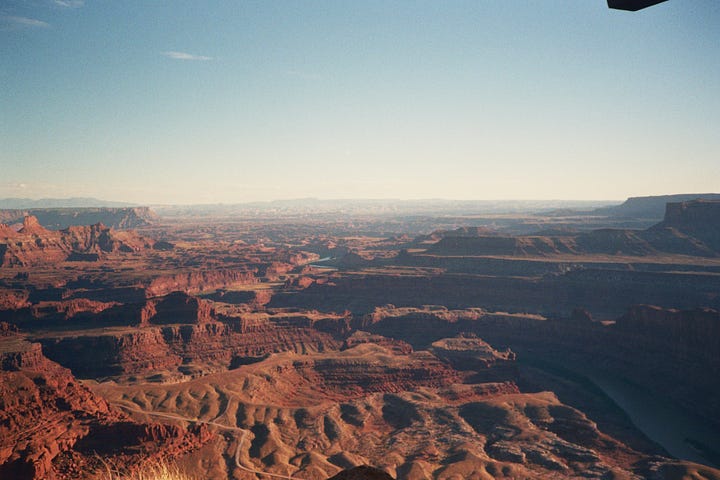
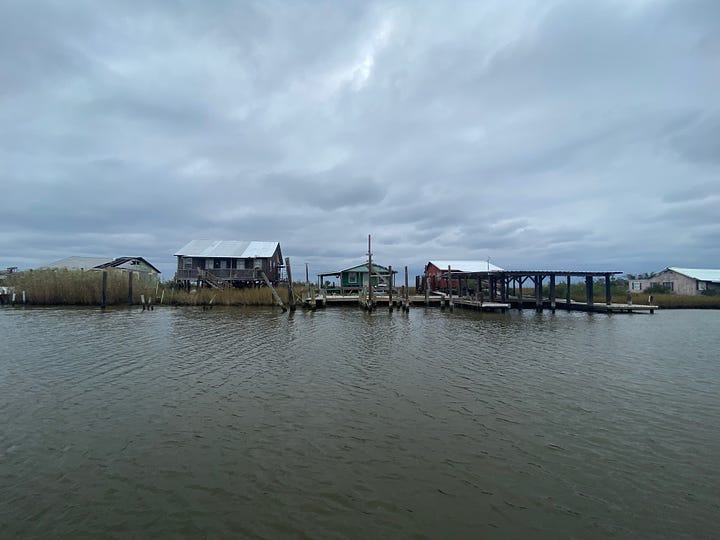
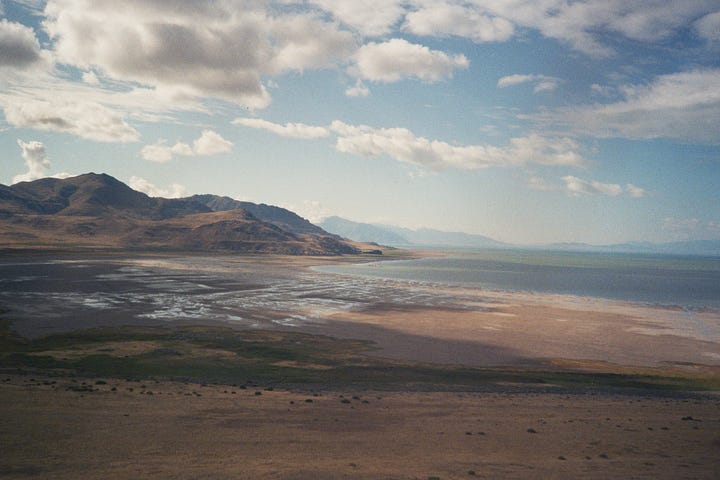
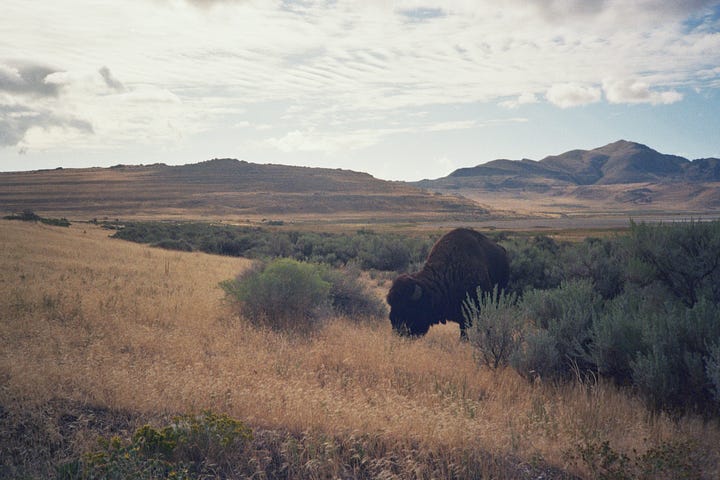
Land, community, faith, and care are all core themes of your work. How do you think about the relationship between these ideas and practices? Why do they matter in the context of changing landscapes?
Part of the challenge we face today is that we find ourselves amidst a society where everything is about the individual even when we are trying so, so hard to be in relationship. We are desperately lonely. We are dissolving into more and more conflict, which is what happens when we are extra lonely and are afraid of dwindling resources. We’ve forgotten what it means, not just to be interdependent, but to be dependent on each other. To surrender our illusion of self-sufficiency is a little form of death. It’s a loss. It’s a giving up of something, and we are much more comfortable with pretending that we are in control.
To give up this illusion will ask a lot of us. Anytime I risk that specific form of vulnerability that is not neatly packaged—and is actually me saying “I need you”—I also have to figure out how to hold myself through the uncertainty that comes along with it. That’s where I think spirituality comes in. It could be God or gods, or it could be another form of tether to purpose, dignity, and worthiness. I think we need that more than ever. Our fear of relating to something bigger than ourselves is deeply tied to our obsession with self-sufficiency.
If we forget that we are needing stuff all the time from the world and each other, everything becomes transactional and we forget about the reciprocity that living requires. The alternative is building deep relationships with place and with people. This can teach us something profound about what it means to be alive, to be human, and to live a good life, which is not always a comfortable one, but one where we are connected to our aliveness.
One of the women I spoke to grew up the daughter of sharecroppers in Louisiana. She shared with me how she felt this generation doesn’t value what matters—place and family. I asked, “how do you learn that?” And she said, “I grew up growing vegetables and cleaning the vegetables with my family, and that’s what we did.” There’s something about intimacy with each other and intimacy with the land that is terrifying, but when we don't get it, we resort to violence and extraction. When this violence is happening at one level, it is happening at all levels.
The pressure on us to pretend to be self-sufficient is only increasing as resources get more limited. With climate change more and more of us are going to be forced to move and integrate into new communities. We're going to need to figure out how to both care for and rely on new people. More broadly, we desperately need a reorientation in how we relate to each other in place.
You draw on the language of “loss” and “grief” frequently when describing this work. What do you mean by “grief” in this context? How has doing this work changed your relationship to these experiences?
My experience working as a hospital chaplain shaped my understanding of the connection between loss, grief, and changing landscapes. When I was at the bedsides of dying people, the patients I worried about most were those who had no family support structures and people who had no sense of connection to something bigger than themselves. I was much less worried about the people who had these things, even if they were dying. There was this sense that, “I am tethered, that someone’s got me, that someone will help me hold my fear.”
I was thinking about this with climate change because we are being asked to confront a lot of change, all at the same time. For some, it is, “you have to leave your home because it is flooded and burning.” There is loss associated with that—leaving your home, leaving your community, losing your loved ones in a disaster. We are terrified to talk about death and it is preventing us from being able to grieve, and this grieving is essential for living. What I mean by grieving is acknowledging in some way what we are losing so that we can figure out how to live now, in the midst of that loss. It’s a process of moving with emotion so that it doesn’t mutate and either devour us or emerge in ways that we don’t expect.
Loss for some people can also look super different from what I just named. It is more along the lines of “I need to change how I think about what it means to be a provider,” or “I always thought I’d be able to raise my kids on the land in this way and I won’t be able to anymore.” When we think about policy or technical interventions for climate change, we also must recognize that these often come along with loss of a particular definition of identity and purpose. Part of the process will be learning how to hold one another through that loss and change. I worry about language that’s just like “some of us are going to have to take some losses.” That’s true, and this loss is going to be disproportionate, but there are ways we can make it less disproportionate. I feel more convinced than ever that the tools we use to support each other through this loss will be determinative of how lasting the change is on the other side.
One last thing about grief: we grieve in community. As a culture we leave people alone in their grief because we’re so afraid of it. If we learn how to hold each other better, in the face of difficult emotions, we’ll find more freedom, we’ll have access to more of our own inner worlds and the external world, and we’ll have much richer connections with each other.
As you’ve been having these conversations, what has given you the most despair? What has given you the most hope?
There have been a lot of days of despair. If I try to pinpoint the locations of the despair, one is when I think about the systems level, particularly when I hear people talk about the forces that have acted upon them and that are leading them to feel trapped. I feel despair when I think about what it will take for us to meet the task before us—how to shift our institutions and cultural norms so that people and places are valued. The other thing that leads me to despair—and the reason I worry about the big systems shifting—is how quickly we are willing to scapegoat people and blame other people without (1) taking them seriously and (2) identifying what within ourselves is allowing us to scapegoat other people so easily. Why is that the best (or only) option that we see available to us? We need to be able to confront ourselves, look at the mess in our own houses, and ask “what now?” This will take all of us.
What gives me hope is that everyone I talked with is refusing to sacrifice their own full humanity, and is continuously practicing an ethic of love. They're refusing to write off people, imperfectly and in a very human way. And they’re working hard to figure out who they need to partner with to make stuff happen. They are taking very seriously their responsibility to care for the people around them. They are taking very seriously their responsibility to care for the land. People are laughing along the way, even in the most horrifying situations. What gives people strength? Community, spirituality, and laughter. Making jokes in the darkest situation helps. It’s also the little moments where someone says “I’m going to trust you this time,” or “I believe you can do this,” that so many of the people I talk to embody. This gives me hope. Each person I spoke with is trying to do the impossible and slowly making it real.





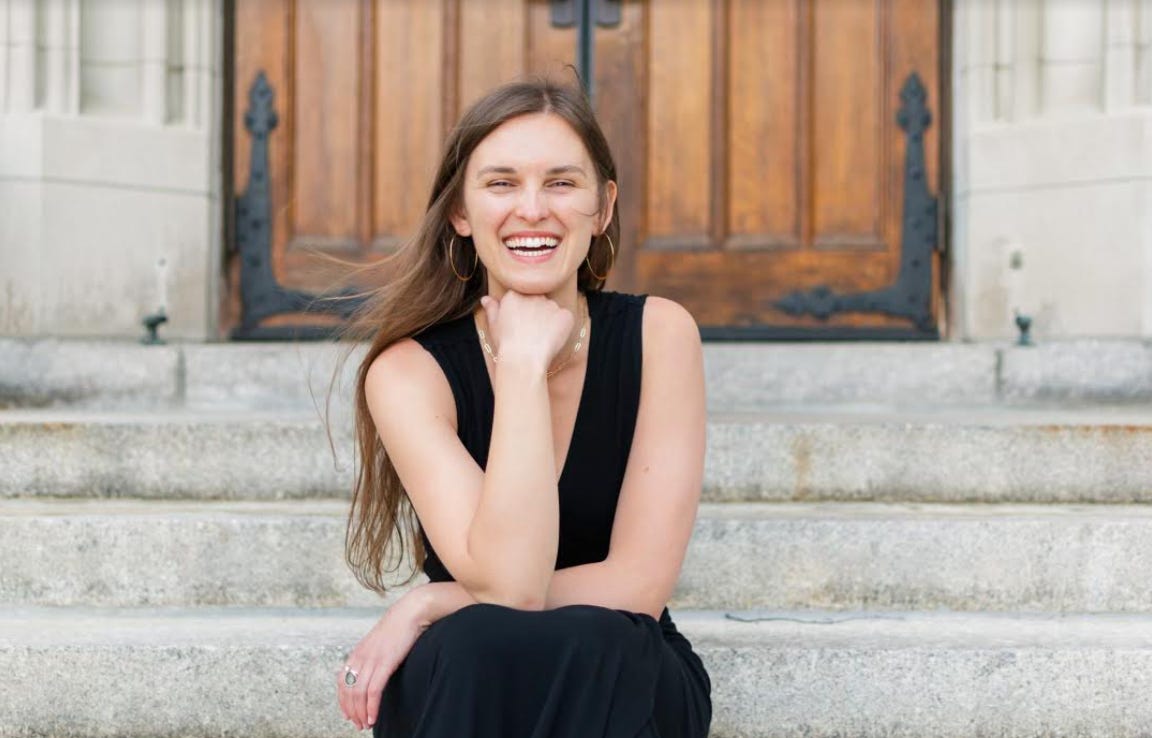
Lovely timing of this article. I’m currently visiting Plenitud PR in Las Marías, Puerto Rico. I think this farm and community is rooted in love - for place, for each other, and for a future that we want. It also makes space for each person to be them, with their unique needs, interests, and skills.
Wabanaki Public Health and Wellness in what is commonly called Maine is another effort rooted in these principles and practices.
These efforts and the people who make them are incredibly generous and welcoming. How lucky we all are for them.